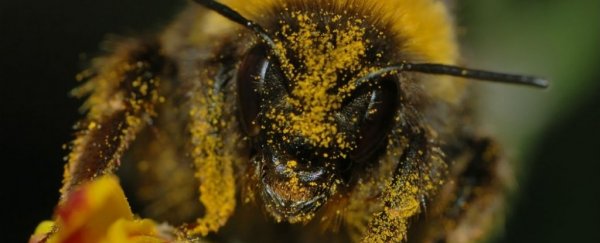The European Union has announced it will ban the world's most widely used insecticides within 6 months, due to the damage they're doing to vulnerable bee populations.
Neonicotinoids will be banned from use in all fields by the end of 2018, and will only be allowed to be used in closed greenhouses.
The ban was voted in by the EU member nations on Friday, in an effort to protect pollinators.
Bees and other pollinating insects are vital to our survival as they pollinate roughly three quarters of the world's food crops - including coffee and chocolate.
But in recent years their numbers have begun to plummet dramatically - in Germany alone up to 75 percent of flying insects have disappeared, something scientists called an "ecological armageddon".
While there are many factors involved, research has shown that pesticides, especially neonicotinoids, are playing a role in this collapse.
Neonicotinoids, which contains chemicals that are similar to nicotine, can damage bees' brains and leave them addicted.
The EU had already banned neonicotinoids in flowering crops such as oil seed rape in 2013.
But a major report released in February showed that the bees could be harmed by any outdoor use, because the pesticides still end up in soil and water.
This new move will see them banned from all outdoor use, to restrict them from contaminating the environment.
While there are concerns agriculture yields might drop as a result of the move, there's plenty of support for the move. Almost 5 million people have signed a petition from campaign group Avaaz supporting the ban.
"Banning these toxic pesticides is a beacon of hope for bees," Antonia Staats at Avaaz told Damian Carrington from The Guardian.
"Finally, our governments are listening to their citizens, the scientific evidence and farmers who know that bees can't live with these chemicals and we can't live without bees."
Others are hoping that the ban signals a shift towards more sustainable agriculture overall.
"If these neonicotinoids are simply replaced by other similar compounds, then we will simply be going round in circles," University of Sussex researcher Dave Goulson told The Guardian.
"What is needed is a move towards truly sustainable farming."
